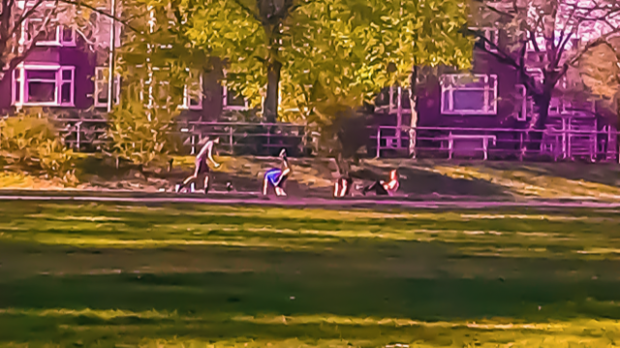
This short essay (“Sulla fine del mondo”) appeared on Agamben’s blog on 18 November 2019. The translation is mine ( Alan Dean ).
The theme of the end of the world has appeared repeatedly in the history of Christianity. Prophets emerged in all periods announcing that the end is nigh. What is singular today is that this eschatological function, long abandoned by the church, has been assumed by scientists who increasingly present themselves as prophets, describing and predicting with absolute certainty the climate catastrophes that they say will lead to the end of life on earth. It is singular but perhaps not surprising, if we consider that in modernity science has replaced faith and assumed a properly religious function. Science is, indeed, the religion of our time: it is that which men believe in. At the very least, it is that which they believe that they believe in.
Like any religion, the religion of science requires an eschatology. That is to say, it needs an apparatus to keep the faithful afraid, and so strengthen their faith, while also keeping a priestly class in power. Apparitions like Greta Thunberg are symptomatic of this situation. Greta blindly believes in the prophecies, and so she awaits the end of the world in 2030, just like the millennialists in the Middle Ages who believed in the imminent return of Christ to judge the world. No less symptomatic is a figure like that of the inventor of Gaia, a scientist who, concentrating his apocalyptic diagnoses on a single factor (the percentage of CO2 in the atmosphere) declares with astonishing naivete that the salvation of humanity lies in nuclear energy. In both cases, the stakes are religious and utterly non-scientific in nature, and this is betrayed by the fact that salvation plays such a central role.
This phenomenon is especially disturbing because science has never before counted eschatology among its tasks. It is conceivable that this assumption of the prophetic mode betrays an awareness of responsibility for the catastrophes predicted. Like any religion, the religion of science has its unbelievers and its adversaries— namely, the adepts of that other great religion of modernity, the religion of money. These two religions appear to be divided, and yet they are secretly united. It was the close alliance between science, technology, and capital that produced the catastrophic situation that is now being denounced.
It ought to be clear that these reflections are not taking a position on the reality of pollution or on the harmful changes wrought by successive industrial revolutions on the material and spiritual conditions of living beings. To the contrary, by warning against the confusion of religion with scientific truth, against the confusion of the prophetic with the lucid, the point is to avoid having interested parties dictating choices and views that, in the final analysis, cannot but be political.
D. Alan Dean
Lives in Oaxaca de Juárez, Mexico. Studied English literature in the PhD program at Johns Hopkins


